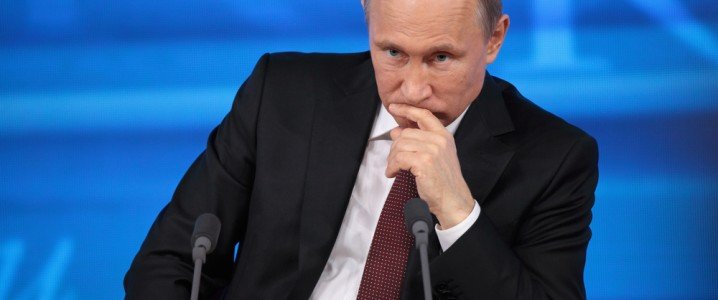By Julianne Geiger – Dec 05, 2024, 3:34 PM CST
In a move aimed at stabilizing European energy markets, Russian President Vladimir Putin has scrapped the requirement for natural gas payments to be processed exclusively through the sanctioned Gazprombank. European buyers can now settle payments via other banks, a significant shift that briefly calmed markets, with European gas benchmark prices dropping by 2.3%.
The decision comes amid heightened tensions after the U.S. sanctioned Gazprombank last month as part of broader measures against Moscow for its ongoing war in Ukraine. The market became jittery out of fear of a potential disruption in Russian gas supplies to Europe, particularly for Central European nations like Hungary, which rely heavily on these imports.
Europe is already navigating a tight energy landscape. The gas transit agreement between Russia and Ukraine, set to expire at the end of this year, threatens to cut off remaining gas flows from Russia. Unusually cold and calm weather this winter has already pressured gas inventories, with even minor supply hiccups possibly creating market turmoil.
This latest decree from Moscow also introduces flexible payment options, such as third-party payments and offsets between buyers and Gazprom. Nevertheless, halted gas flows will only resume if payments are made in rubles–a difficult ask for some.
Analysts remain divided on the impact of these changes. Jonathan Stern of the Oxford Institute for Energy Studies notes that while Putin appears eager to retain European exports, the flexibility may do little to ease long-term uncertainty for buyers.
For European nations still reliant on Russian gas—like Hungary and Slovakia—the easing of restrictions offers a reprieve. Yet, with geopolitical tensions still high and Europe’s energy transition gaining urgency, the future of Russian gas flows to the continent remains in flux.
In March 2022, amid escalating tensions due to the Ukraine conflict, Russian President Vladimir Putin mandated that “unfriendly” countries pay for natural gas in rubles. This meant that European buyers had to convert payments into rubles via Gazprombank. The policy led to significant disruptions in nations like Poland and Bulgaria, which refused to comply.
Hungary, which continues to receive Russian natural gas via pipeline, asked U.S. authorities earlier this week to exempt Russia’s Gazprombank from the sanctions when payments for natural gas are processed.
By Julianne Geiger for Oilprice.com
More Top Reads From Oilprice.com
- OPEC’s Leader is Making Big Moves in Carbon Markets
- Venezuela’s Gas Pipeline Explosion Highlights Crumbling Infrastructure
- Oil Jumps on Fuel Inventory Draws
![]()
Julianne Geiger
Julianne Geiger is a veteran editor, writer and researcher for Oilprice.com, and a member of the Creative Professionals Networking Group.


